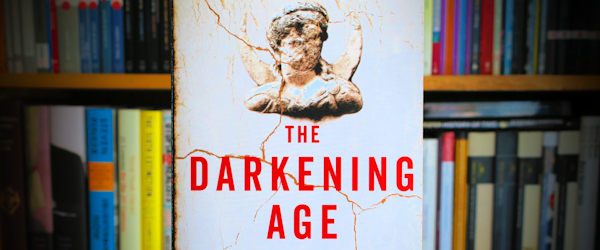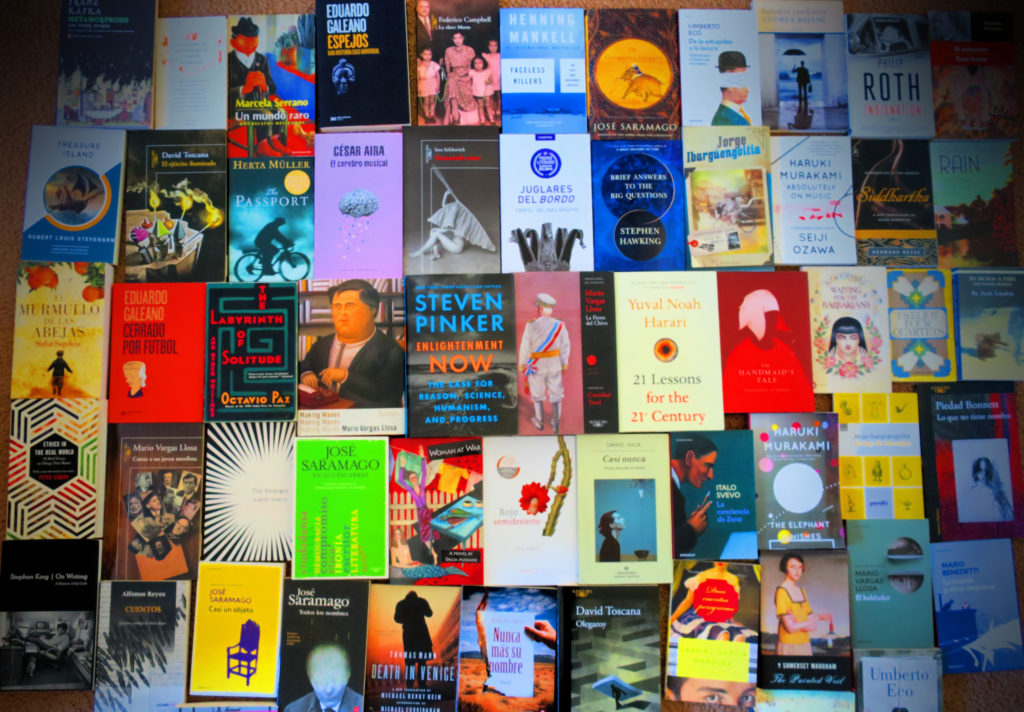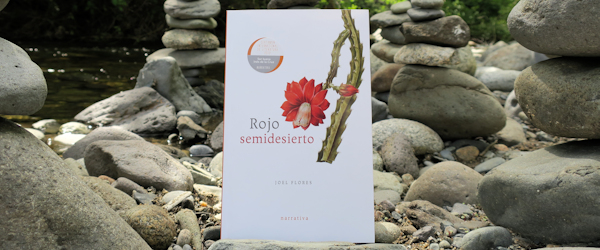 Cada comienzo de año es, para muchos, una oportunidad para autoevaluarse y ponerse retos o propósitos para cambiar o mejorar algunos aspectos de su vida hacia una más satisfactoria y recompensante.
Cada comienzo de año es, para muchos, una oportunidad para autoevaluarse y ponerse retos o propósitos para cambiar o mejorar algunos aspectos de su vida hacia una más satisfactoria y recompensante.
Entre los propósitos más comunes están hacer ejercicio, dejar algún vicio (fumar, por ejemplo), leer más libros, viajar a un destino exótico, reconectar con familiares o viejas amistades, aprender alguna nueva habilidad, etcétera.
Pero también es muy enriquecedor aprovechar la transición del año nuevo para reflexionar sobre el punto en el que se encuentra nuestra vida y pensar en cómo podemos darle mayor sentido a nuestra existencia en este brevísimo paso que tenemos por el mundo.
Recientemente leí el ensayo “Sobre la brevedad de la vida, el ocio y la felicidad” del filósofo romano Lucio Séneca (Editorial Acantilado), y sus enseñanzas de hace casi dos mil años siguen inspirando a la humanidad hoy.
Sobre la brevedad del tiempo, el filósofo estoico nos invita a aprovecharlo mejor y a saber invertirlo bien, pues más allá de tener poco tiempo, derrochamos mucho. Hay que ser más selectivos con las actividades que demandan nuestro tiempo y aprender a filtrar mejor aquellas que más nos enriquezcan y le den sentido a nuestra vida.
Aunque es bueno planear a futuro, Séneca nos recuerda también que nada nos garantiza contar con ese futuro para realizar las actividades planeadas: “El mayor obstáculo para la vida es la expectación que depende de mañana y pierde lo de hoy.”
Si el tiempo pasado es inamovible y el tiempo futuro es incierto, valoremos aún más este universal “ahora” presente de tiempo que, aunque es el más breve, es el más poderoso y el único del que tenemos dominio. Vivamos con mejor presencia y aprovechamiento el hoy.
En cuanto a las lecciones filosóficas sobre la felicidad, Séneca menciona que todos quieren ser felices, claro, pero la mayoría se la pasa queriendo descubrir a ciegas qué es lo que hace feliz la vida. Con ello, algunos caen en la trampa de la popularidad, creyendo que la mejor manera de vivir es aquella aceptada por la mayoría, y terminan por imitar a otros que aparentan ser felices, pensando equivocadamente que lo serán también ellos mismos.
Séneca sostiene que una vida feliz solo puede ir de la mano de la virtud, de hacer el bien por el bien mismo, y nos invita a vivir conforme a la razón y en total libertad para lograr una auténtica felicidad propia, genuinamente nuestra.
De tal manera, para Séneca, “es feliz el hombre para quien nada es bueno ni malo, salvo tener un alma buena o mala, un hombre que cultiva la honradez, se contenta con la virtud, a quien la fortuna no exalta ni quiebra, que no conoce bien mayor que el que pueda darse a sí mismo y cuya verdadera pasión será el desprecio de las pasiones.”
¿Y qué hay sobre los placeres en la felicidad? Séneca no está en contra de los placeres de la vida, pero sí advierte que tengamos inteligencia, cuidado y mesura al disfrutarlos. Que seamos nosotros quienes dominemos los placeres y no al revés, que no sean los placeres que nos controlen a nosotros.
De igual manera, Séneca tampoco está en contra de las posesiones materiales, pero nos invita a actuar con sabiduría reconociendo que la felicidad no debe depender de la acumulación de tales riquezas. Debemos aprender a ser felices con o sin ellas. En el momento en que nuestra felicidad dependa directamente de la adquisición de bienes materiales, nunca alcanzaremos la felicidad, porque caeremos en el sempiterno vicio de desear cada vez más.
Por último, Séneca habla sobre el ocio como un privilegio para quienes tienen la fortuna de aprovecharlo. El ocio es una excelente oportunidad para dedicarse a la contemplación de la verdad, a la búsqueda de la razón y a compartir con otros sus conocimientos y talentos.
Si uno dispone de tiempo libre, las bellas artes siempre son un buen refugio para darle más sentido a nuestra vida. Pero para Séneca también es importante aprovechar el ocio no solo para la contemplación, sino para la acción. Que nuestro tiempo libre sirva en beneficio de nuestra comunidad ya sea participando activamente en la política o en organizaciones que luchan por una sociedad más abierta, libre y justa.
Que este año 2022 sea para todos ustedes muy enriquecedor, de buen aprovechamiento del tiempo, lleno de memorables momentos de felicidad, de buena salud, de vivir la vida plenamente y siempre con amor.
 Throughout the history of humanity, intellectual progress has always depended on reason and the freedom to ask, question, doubt and, above all, to experiment. But human advancement suffered a brutal halt during a dark period that started in the mid 380’s in the city of Palmyra and ended in Athens around the year 529, an era of retrogression exposed in the eye-opening book “
Throughout the history of humanity, intellectual progress has always depended on reason and the freedom to ask, question, doubt and, above all, to experiment. But human advancement suffered a brutal halt during a dark period that started in the mid 380’s in the city of Palmyra and ended in Athens around the year 529, an era of retrogression exposed in the eye-opening book “ In the history of our planet there have been five great mass extinctions. The first during the late Ordovician period 450 million years ago by glaciation, and the last, and most famous, at the end of the Cretaceous period 65 million years ago, when a giant asteroid six miles wide travelling at a speed of 45,000 miles per hour collided with the Earth, wiping out three-quarters of all species, including all dinosaurs.
In the history of our planet there have been five great mass extinctions. The first during the late Ordovician period 450 million years ago by glaciation, and the last, and most famous, at the end of the Cretaceous period 65 million years ago, when a giant asteroid six miles wide travelling at a speed of 45,000 miles per hour collided with the Earth, wiping out three-quarters of all species, including all dinosaurs. My reading summary for 2018. Total books read: 62. Fiction 74% and non-fiction 26%; 53% in Spanish and 47% in English; 25% female authors, 75% male authors (need to improve balance here).
My reading summary for 2018. Total books read: 62. Fiction 74% and non-fiction 26%; 53% in Spanish and 47% in English; 25% female authors, 75% male authors (need to improve balance here). “Pedí perdón… porque no entendía que vivimos en una ciudad que ni siquiera nos pertenece, que nos castiga y nos hunde y hace que nos destruyamos unos a otros, que nos es indiferente cuando la muerte nos duele de verdad. ¿Qué sentirán aquellos que mutilan lazos familiares? ¿Dormirán tranquilos los hombres que matan a quienes no deben nada?”
“Pedí perdón… porque no entendía que vivimos en una ciudad que ni siquiera nos pertenece, que nos castiga y nos hunde y hace que nos destruyamos unos a otros, que nos es indiferente cuando la muerte nos duele de verdad. ¿Qué sentirán aquellos que mutilan lazos familiares? ¿Dormirán tranquilos los hombres que matan a quienes no deben nada?”